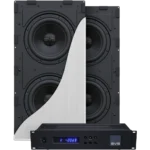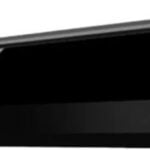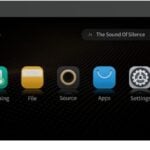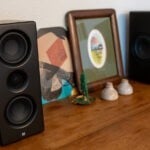Jonathan T.
Stunt Coordinator
- Joined
- May 6, 2005
- Messages
- 136
So I finally started upgrading my speakers. I started with the mains of course going from som Yamaha barely better than HTIB speakers to some very nice Infinitys. Man, I can't even describe what a difference there is, but I am sure you all can relate.
But as I tend to get whenever I make a major purchase, I have been a little paranoid about blowing them. (BTW, can you blow a speaker by playing it too loud if there is no distortion of any kind?)
Today I noticed a very noticable hiss coming from my speakers when I was playing my star wars sountrack cds. It got louder if I turned the volume up and quieter when I turned it down. Immediately I suspected the speakers because I never heard the hiss on my old speakers. (do blown speakers ever hiss?)
I started looking around online and read about a test to see if it was the amp was the culprit. I turned it to an unused input and cranked the volume. dead silent. ok so its not the amp. good.
maybe it was the dvd player? but wait a minute, would there be noise on all cds? i tried a few others. I noticed that the noise was worse on live recordings, and i guess the star wars discs being orchestral music would have been recorded live, eh? so now i am at least 95% sure its the source material. But I did one more test, i ripped a track from one of the noisy discs and loaded it up into goldwave and filtered out "hiss". burned the same section of the song, back to back, the original unedited track, and then the cleaned track. well, I lost a little bit of detail from the recording, but low and behold no more hiss coming from my speakers.
So in the end, my speakers arent broken, my amp puts out a completely clean signal with no hiss of its own etc. And I have leanred that good speakers are a double edged sword, they make good recordings sound amazingly good, but they also make even slight flaws in a recodring very obvious.
Couple more questions:
Though I am not a big fan of MP3s, I do have a small collection. Sime I ripped myself, others I um, found...
The ones I ripped on my own sounds decent, but many of the others have very major pops and clicks, some really loud and jarring. I am wondering if playback of these pops and clicks can damage my speakers?
But as I tend to get whenever I make a major purchase, I have been a little paranoid about blowing them. (BTW, can you blow a speaker by playing it too loud if there is no distortion of any kind?)
Today I noticed a very noticable hiss coming from my speakers when I was playing my star wars sountrack cds. It got louder if I turned the volume up and quieter when I turned it down. Immediately I suspected the speakers because I never heard the hiss on my old speakers. (do blown speakers ever hiss?)
I started looking around online and read about a test to see if it was the amp was the culprit. I turned it to an unused input and cranked the volume. dead silent. ok so its not the amp. good.
maybe it was the dvd player? but wait a minute, would there be noise on all cds? i tried a few others. I noticed that the noise was worse on live recordings, and i guess the star wars discs being orchestral music would have been recorded live, eh? so now i am at least 95% sure its the source material. But I did one more test, i ripped a track from one of the noisy discs and loaded it up into goldwave and filtered out "hiss". burned the same section of the song, back to back, the original unedited track, and then the cleaned track. well, I lost a little bit of detail from the recording, but low and behold no more hiss coming from my speakers.
So in the end, my speakers arent broken, my amp puts out a completely clean signal with no hiss of its own etc. And I have leanred that good speakers are a double edged sword, they make good recordings sound amazingly good, but they also make even slight flaws in a recodring very obvious.
Couple more questions:
Though I am not a big fan of MP3s, I do have a small collection. Sime I ripped myself, others I um, found...
The ones I ripped on my own sounds decent, but many of the others have very major pops and clicks, some really loud and jarring. I am wondering if playback of these pops and clicks can damage my speakers?





